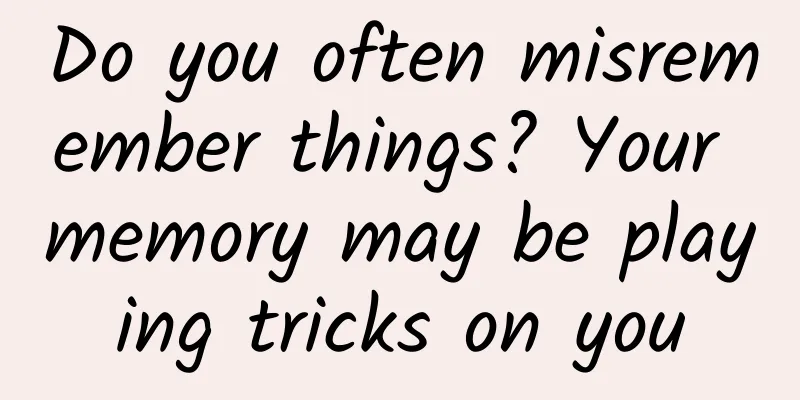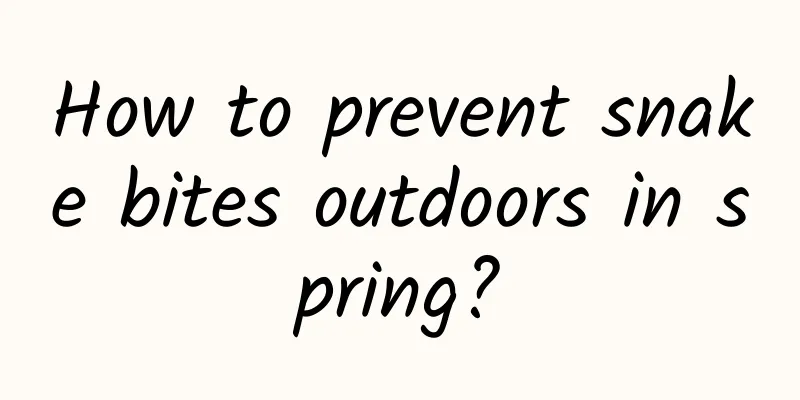Do you often misremember things? Your memory may be playing tricks on you

|
In the process of couples counseling, we often find a phenomenon that deserves our attention: one spouse is upset about something that happened in the past, and often feels extremely uncomfortable and cries when thinking about it. It stands to reason that for something that has such a significant impact on the relationship between husband and wife, the other party should remember it clearly. However, what often happens is that when one party brings up the incident, the other party will freeze there, staring at the ceiling, trying hard to recall the situation at the time, and will easily say, "If I hadn't brought it up today, I would have forgotten about it." Moreover, there are often huge differences between the couple's recollections of the whole incident. Memory is actually a very interesting field of research. Although most people are not very confident about their memory and know that they will forget things, they are extremely confident about certain contents of their memory, thinking that they are copies of the objective world and cannot be wrong. Therefore, in the family, a common situation of husband and wife quarreling is that one party says very excitedly: "You clearly said that, and you refuse to admit it." The other party feels extremely aggrieved and says even more excitedly, "I never said such a thing at all." In fact, our memory can be wrong and can create something out of nothing. I have verified this situation countless times in class. Every semester, I always like to do an experiment with students. Before the experiment, I asked them to close their eyes and then read a few words to them one by one (if you are interested, you can test it with your friends): bed, rest, wake up, tired, dreaming, awake, nap, blanket, quilt, snooze, snoring, yawn, drowsy. Then they can open their eyes. At this point I will ask them a few questions: Question 1: Have I read the word "snoring" just now? Most people nodded and said they had. Question 2: Have I read the word "mother" just now? Most people will shake their heads and say no. Question 3: Have I read the word "sleep" just now? The answer to this question is very interesting. Usually some people nod and say they have read it, while others shake their heads and say no. Those who nodded were very confident and said that they had read it; those who shook their heads were equally confident and said that they had never read it at all. It should be noted that my students all have high IQs. Being in their early twenties, they do not have any defects in memory. Why are the first two questions not difficult, but the last one is difficult? This is related to a network model of semantic memory. This model believes that semantic memory is a network, the nodes in the network are concepts, and the lines between the nodes represent the connections between concepts. If the line between two concepts (nodes) is shorter, then the relationship between the two concepts is closer. What is important is that when a concept is activated (that is, when I read it), the nodes connected to it will also receive a certain amount of activation. When the activation level of a concept exceeds a certain threshold (threshold value), the concept will be extracted. The words I read in class are all more or less related to sleep. In other words, when I read each word, the word sleep will be activated to a certain extent. After reading this string of words, for some students, the activation of the word "sleep" will exceed the threshold, thus creating the illusion that I have indeed read this word. These words are not very related to mother, so everyone is very sure that the word "mother" has not received much activation. This example also shows that our memory is not so accurate. This is just an example of memorizing words, and events in the real world are more complex than memorizing words, and are more easily affected by our inner state, making them more prone to errors. Humans are naturally inclined to logic and love stories. When given some illogical materials, people will involuntarily want to get a meaningful and logical story from these materials. This tendency occurs naturally in our memory process. This subjective interpretation process is far more subjective than the event itself. Hopefully, the next time we have an argument because of “you clearly said that,” we can think of this, and then the argument is more likely not to go on in an endless cycle, but to stop and imagine what happened and seek more constructive strategies to solve relationship problems. Author: Wang Kui Associate Researcher, Institute of Psychology, Chinese Academy of Sciences, Second-level Psychological Counselor Image source: soogif Editor: Guru |
Recommend
Li Xiaoyue's Xiaohongshu full-level short video training camp, 30-day community training camp
Li Xiaoyue's Xiaohongshu full-level short vid...
Original | Google insiders teach you how to use Google Play rules to promote mobile games
According to statistics, in 2014, Google Play sha...
NASA waited 11 years for the observation, but was forced to stop by a broken water pipe
We have seen many shocking images of the sun, suc...
LeTV Sports breaks the record of financing with 800 million yuan. Why is it favored by Jack Ma and Wang Jianlin?
Let's go back to 2012, when Jack Ma and Wang ...
It is said that product and marketing experts all "understand human nature". How can you do that?
After working in the product and marketing fields...
Do 4S stores need to certify Douyin Blue V? How to get Blue V on Douyin?
As a representative of short video platforms, Dou...
Advertising spending rankings in October 2016 (with analysis)
The latest research from CTR Media Intelligence s...
WeChat Pay crashed on a large scale! Official response: The problem still exists
[[280756]] On the evening of October 29, WeChat P...
Why do Android phones become stuck after a long time of use, but Apple phones don't?
Android App development only needs to comply with...
Cook responded indirectly to Xiaomi's rise: Apple is not worried
[[127868]] According to the US technology website...
A well-known male singer died of cerebral hemorrhage after singing on stage! Be careful when singing with such people
Earlier, the media reported that Atsushi Sakurai,...
Why doesn’t the iPhone 6 have a sapphire screen?
An article recently published by foreign media di...
YYDS, Trumpchi GS4 PLUS is officially launched
On June 30, GAC Trumpchi GS4 PLUS was officially ...
Reddit user reverse-engineers Apple's CSAM tool and discovers algorithm already exists
[[418306]] Earlier this month, Apple announced th...



![[Creative Cultivation Program] Getting angry can actually cause poisoning?! In the hot summer, you need to calm down and cool down naturally](/upload/images/67f2609416e0f.webp)
![[Farming in the 24 Solar Terms] Qingming: A good time to plant beans with drizzles](/upload/images/67f23d2d0f5ba.webp)




